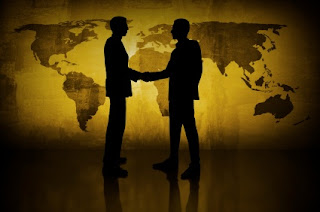The connection between the US and Europe is weaker and has less weight in the world than ever. Since the end of the Second World War, the transatlantic relationship has been crucial to international security and stability of the economy. That alliance today is weaker and has less weight in the world than ever. Given what is at stake, Eurasia Group believes that this is the main political risk in 2016.
In part, it is a logical result of the rise of the other, the growing influence of emerging countries such as China, India, Brazil, Russia, Turkey and all who represent a wide range of political and economic values. Some countries have more than enough strength and to despise the pressures of the richest confidence in many areas. Moreover, after the long wars in Iraq and Afghanistan Americans they are less willing to take risks and costs abroad, so the Obama administration, like George W. Bush, has to resort to unilateral foreign policy instruments sanctions, surveillance operations and drones. This has alienated Washington turning many of its European allies. Besides, Europe has a growing list of serious own problems: political tensions created by the arrival of immigrants, threats related to the Islamic State (ISIS, its acronym in English), differences with Russia over Ukraine and Syria and the future British referendum on the EU. Europe is divided, vulnerable and insecure.
As a result, several European governments are asking for help not always his American partner, but other governments that offer them things that the United States can not or does not want to. Britain has reason to want to get along with China, while wondering how to remain an economic power and especially now that the EU future is in doubt. In order to expand their opportunities, despite US objections, it has been integrated into the Asian Infrastructure Investment, controlled by China. In exchange for being a world center of internationalization of renminbi, Britain will care less for the exchange of technologies, human rights in China, security problems such as Taiwan and the South China Sea and even democracy in Hong Kong . The British needed investments.
France has reasons of safety to approach Russia. The French Government has taken much stronger military action against the ISIS. US has thrown bombs and Germany is engaged in diplomacy, humanitarian aid and infrastructure, but Russia supports Syrian terrorist President Bashar al-Assad, and France hopes that eradicates the ISIS and cut the flood of refugees to Europe. Following the attacks in Paris, Hollande recalled a chapter of the Lisbon Treaty to appeal to the European collective security for the first time in history-- rather than NATO, because that would prevent cooperation with Russia.
After the wars in Iraq and Afghanistan Obama is less willing to take risks abroad. Germany has a political motive to cooperate with Turkey. Chancellor Angela Merkel understands that its policy open to refugees only work doors when the tide does not turn into an avalanche. To do this, Germany must agree with the Erdogan government in Turkey, which hosts more than two million Syrian refugees. Merkel has offered to reinvigorate his candidacy to EU and study visa exemption for Turks in Europe, despite the harassment of Erdogan against political opponents and journalists. None of these policies represent the traditional transatlantic values.
The divisions between the US and Europe will be this year in Ukraine and Syria. Americans defend their principles: they insist on maintaining the sanctions to Russia to Ukraine and Putin release that Assad must go. The Europeans, who suffer the direct consequences of the two situations, prefer pragmatism. The EU will surely relax the sanctions to Russia and choose your enemies in Syria one by one.
Loss of contents of the transatlantic relationship also means that in the future, as will the US and Europe have much more in common with each other than with China; economic realities outweigh the values. It will be a disgrace to a partnership that, for all its faults, has contributed more than any other in history to promote democracy, freedom of expression and the rule of law.








0 komentar:
Post a Comment